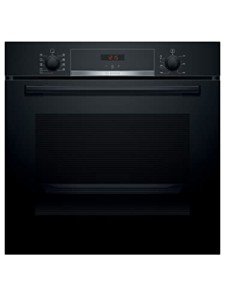Ten Built In Electric Ovens That Really Make Your Life Better
ліёл¬ё
The Comprehensive Guide to Built-in Electric Ovens and Hobs
In today's hectic world, modern kitchen appliances have developed drastically to cater to the tastes and requirements of modern property owners. Among these appliances, built-in electric ovens and hobs stick out for their efficiency, design, and Built In Electric Ovens performance. This short article explores the functions, benefits, installation ideas, and upkeep of built-in electric ovens and hobs, together with addressing frequently asked questions.
Comprehending Built-in Electric Ovens
What Is a Built-in Electric Oven?
A built-in electric oven is a device created to be set up into a wall or kitchen cabinetry, offering a smooth, integrated look in the kitchen. Unlike freestanding fitted ovens, built-in designs save space and frequently come equipped with extra functions such as self-cleaning cycles, convection cooking, and different cooking modes.
Types of Built-in Electric Ovens
- Single ovens integrated: Ideal for smaller sized kitchens or those who cook for fewer individuals.
- Double Ovens: Offer more cooking space, suitable for larger families or those who entertain regularly.
- Mix Ovens: These consist of both a traditional oven and a microwave, supplying flexible cooking choices.
Benefits of Built-in Electric Ovens
| Benefit | Description |
|---|---|
| Space-Saving Design | Fits seamlessly into cabinetry, maximizing counter space. |
| Enhanced Aesthetics | Develops a modern, professional kitchen look. |
| Versatile Cooking Options | Typically features numerous cooking modes including bake, broil, and convection. |
| Energy Efficient | Consumes less energy than traditional ovens. |
Understanding Built-in Hobs
What Is a Built-in Hob?
A built-in hob is a cooking surface area set up into the kitchen counter top, integrating flawlessly with the kitchen design. Offered in electric, induction, and gas varieties, electric hobs are renowned for their accuracy and ease of usage.
Types of Built-in Hobs
- Electric Hobs: Traditional coil aspects that heat by means of electrical resistance.
- Induction Hobs: Use magnetic energy to heat only the pots and pans, making them much faster and more secure.
- Ceramic Hobs: Feature a smooth surface area with glowing heat beneath, using easy cleaning.
Advantages of Built-in Hobs
| Benefit | Description |
|---|---|
| Fast Cooking Times | Electric hobs heat quickly, minimizing total cooking time. |
| Easy to Clean | Flat surface enables quick and straightforward cleaning. |
| Resilient | Generally built to last and withstand heats. |
| Versatile Compatibility | Works well with various pots and pans products. |
Setup Considerations
Setting up a built-in electric oven and hob needs cautious planning.

Steps for Installation
- Step the Space: Ensure the measurements of the oven and hob match the allocated space in your kitchen.
- Check Electrical Requirements: Consult an electrician to ensure wiring can deal with the device's power needs.
- Positioning of Appliances: Position the oven at a hassle-free height, generally between waist and eye level.
- Ventilation: Ensure appropriate ventilation, specifically if your oven includes a range hood.
Essential Tools
- Power drill
- Screwdrivers
- Level
- Determining tape
Safety Precautions
- Constantly disconnect the power before installation.
- Follow manufacturer instructions carefully.
- Consider working with an expert for electrical connections.
Upkeep Tips
Keeping built in oven uk-in electric ovens and hobs is essential for longevity and efficiency.
Routine Care Routine
- Cleaning up the Surface: Use a soft fabric and manufacturer-recommended cleaner.
- Inspecting Electrical Connections: Check cords and plug for damages regularly.
- Cleaning up Filters: If the oven has a ventilator, tidy or replace the filters as required.
Troubleshooting Common Issues
| Concern | Possible Solution |
|---|---|
| Oven Won't Heat | Inspect the power supply and heating element. |
| Heating Inconsistency | Inspect the thermostat and oven calibration. |
| Hob Not Heating | Make sure cookware works and inspect the power supply. |
Regularly Asked Questions
1. How do I choose the right size built-in electric oven?
Picking the right size includes determining your kitchen area and thinking about how much cooking you usually do. If you captivate frequently or have a large family, decide for a double oven.

2. Are built-in electric hobs safe to use?
Yes, built-in electric hobs are safe, especially induction hobs which just heat the pots and pans, decreasing the risk of burns.
3. Can I install a built in electric ovens - historydb.date,-in oven and hob myself?
While it is possible for skilled DIY enthusiasts, working with a professional is suggested, particularly for the electrical connections.
4. How frequently should I clean my built-in oven and hob?
Cleaning up must be done regularly after usage, with deep cleansing periods depending on cooking frequency - generally every few months.
5. Do built-in appliances need unique maintenance?
Built-in appliances require comparable upkeep to freestanding models, but proper care should be taken with their surrounding cabinets.
Built-in electric ovens and hobs provide a combination of technology and design, offering efficiency and contemporary looks to any kitchen. With correct selection, careful installation, and routine upkeep, these appliances can boost one's cooking experience for numerous years. Understanding the functions, benefits, and care requirements can empower homeowners to produce the kitchen of their dreams-- efficiently and stylishly.
As kitchens continue to progress into main centers of the home, choosing the ideal built-in options plays an important role in daily cooking creativity and satisfaction.

лҢ“кёҖлӘ©лЎқ0
лҢ“кёҖ нҸ¬мқёнҠё м•ҲлӮҙ